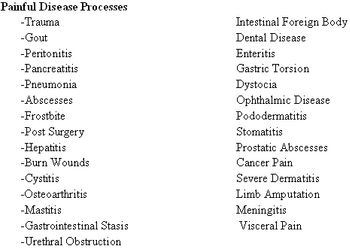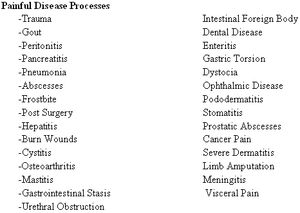
Educate clients early to monitor for these behavioral changes.
Dr. Bradley Bays has been a veterinarian at Belton Animal Clinic & Exotic Care Center since 1993 and has been an owner in the practice since 1997. She is an internationally-acclaimed author and lecturer on exotic pet species and recently earned Board Certification as a specialist in Exotic Companion Mammals, a designation held by less than 20 veterinarians worldwide. She is also a Certified Veterinary Acupuncturist and is studying Chinese Herbal Therapy.
Bradley Bays is author of many articles, several book chapters and co-editor and co-author of "Exotic Pet Behavior: Birds, Reptiles, and Small Mammals." She is past president of the Association of Reptilian and Amphibian Veterinarians and of the Missouri Academy of Veterinary Practitioners and co-leader of the KC-CAN (Caring for All Network), a group that works to disseminate information about the link between animal abuse and domestic violence.

Educate clients early to monitor for these behavioral changes.

Relaxed: fluffed feathers under the beak and on the head, preen, stretch, eye closing slightly, pupils normal size, head low around shoulders, vocalizing quietly, gently playing with a toy or object, one foot tucked up close to the body, rouse, flick its wings or shakes tail, scratches its own head

Healthy ferrets: Inquisitive, alert and curious, bright eyes, will often eat if offered favored treats

Physiologic "stress" response to pain.

Do not aggressively palpate females with distended coeloms or over-restrain for procedures (preovulatory stasis, egg bound, egg yolk peritonitis).

When a pet is sick clients will often do some research and find that diet and environment is incorrect. Many times they make those changes just prior to their visit and report to you only the recent diet and environment. It is up to you and your staff to find out what the real situation is that the patient has been in prior to the visit.

When a pet is sick clients will often do some research and find that diet and environment is incorrect. Many times they make those changes just prior to their visit and report to you only the recent diet and environment. It is up to you and your staff to find out what the real situation is that the patient has been in prior to the visit.

Did your last new hire fail to live up to his or her potential after a promising interview? Teresa Bradley Bays, DVM, owner of Belton Animal Clinic and Exotic Care Center in Belton, Mo., solves this problem with a little lunch.

Published: August 1st 2010 | Updated:

Published: August 1st 2010 | Updated:

Published: August 1st 2010 | Updated:

Published: August 1st 2010 | Updated:

Published: August 1st 2010 | Updated:

Published: August 1st 2010 | Updated: